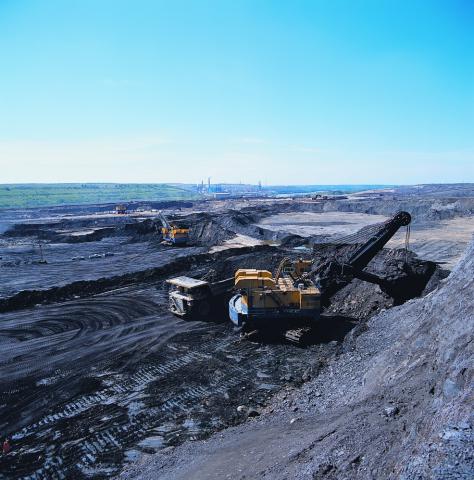“America is addicted to oil,” said the arch-environmentalist and fervent renewable energy advocate George W. Bush in his State of the Union address in 2006. Good thought. His successor, Barack Obama, has actually acted on that perception, though, and worked to reduce America’s reliance on oil and other fossil fuels. He and his administration have negotiated a long-term agreement to significantly increase gas mileagedirective to radically improve the environmental performance of federal buildings and vehicles; and designated a large portion of the economic stimulus package for green initiatives. Obama said in March that “…for the sake of our planet and our energy independence, we need to begin the transition to cleaner fuels now.”
Looming over the border in Canada, however, is the specter of the tar sands. Production of crude oil from the tar sands is tracking at 1.5 million barrels a day for 2010. Of this, over a million barrels is exported to the U.S. The environmental and public health impacts of the extraction, processing and transportation of tar sands have been well documented and reported. These are concerns that have been expressed by environmental groups in North America and Europe, but now the economic and security implications of increasing tar sands development are being addressed by key members of the U.S. Congress as well as analysts working on the critical interface between energy, environment and security.
Barring Tar Sands Oil
Congressman Henry Waxman, the outgoing chairman of the Energy and Commerce Committee in the U.S. House of Representatives, was the driving force behind Section 526 of the Energy Independence and Security Act of 2007 [PDF]. Section 526 prohibits federal agencies from procuring alternative fuel unless its life cycle GHG emissions are less than those for conventional petroleum sources. This provision set off alarm bells in Canada. The Ambassador to the U.S., Michael Wilson, wrote to Defense Secretary Robert Gates [PDF] within a couple of months of EISA becoming law to say that “Canada would not want to see an expansive interpretation of Section 526, which would then include commercially-available fuel made in part from oil derived from Canadian oil sands.”
The Sierra Club has been canvassing the records of federal agencies to determine whether or not they have been in violation of Section 526. On June 18, the Sierra Club and the Southern Alliance for Clean Energy filed a lawsuit [PDF] saying that DOD is in violation of the law. The complaint contends that “The U.S. Department of Defense currently utilizes millions of barrels per year of oil sands derived mobility fuels that are part of blends of oil sands derived fuels with fuels from conventional petroleum sources. These fuels are supplied under contracts with several refineries around the United States.”
Security Concerns
Kate Colarulli, director of the Sierra Club’s Dirty Fuels Campaign, says that tar sands crude is a detriment to U.S. national security in two ways. First, as the U.S. continues to consume oil, it continues to drive up its price and, indirectly at least, support destabilizing interests. She cites the work of the Truman National Security Project in this regard. Testimony [PDF] from one of their Fellows before Congress in April alleged that “The fact is that the one billion dollars a day that Americans send overseas for oil is flooding a global oil market that enriches hostile governments, funds terrorist organizations, and props up repressive regimes.”
Clearly the Canadians are not a hostile government to the U.S. but the point is that a growing demand for oil, no matter its origin, is going to further enrich interests that are. CNA, a non-profit research organization, issued a report in May of 2009 that echoed this concern: “U.S. dependence on oil — not just foreign oil — weakens international leverage, undermines foreign policy and leaves us vulnerable to unstable or hostile regimes.”
Colarulli’s other point is that to the extent that fossil fuel extraction and use continues in a “business as usual” fashion, the climate system will continue to suffer, and the devastating impacts we have already experienced will worsen. Again, CNA’s analysis underscores this. Retired Vice Admiral Dennis McGinn, was quoted in the press release: “Increasing demand for, and dwindling supplies of, fossil fuels will lead to conflict. In addition, the effects of global climate change will pose serious threats to water supplies and agricultural production, leading to intense competition for essentials.”
The U.S. Department of Defense knows what time it is. They are moving quite vigorously to reduce their dependence on fossil fuels. The stakes are high.
The New Congress
The 112th Congress will see a new balance of power in the House of Representatives. Although some progressive analysts are fearful of the influence of an incoming class of “climate zombies” in the House, there is some hope that because the critically important Energy and Commerce Committee will be chaired by a moderate, Fred Upton, things will not entirely unravel. In any event, there will likely be renewed efforts to strike Section 526 from federal law and other moves to monkey wrench the progress that the U.S. has been making under President Obama to decarbonize the economy.
Continue to Part 2.
Subscribe to our newsletter
Stay up to date with DeSmog news and alerts







